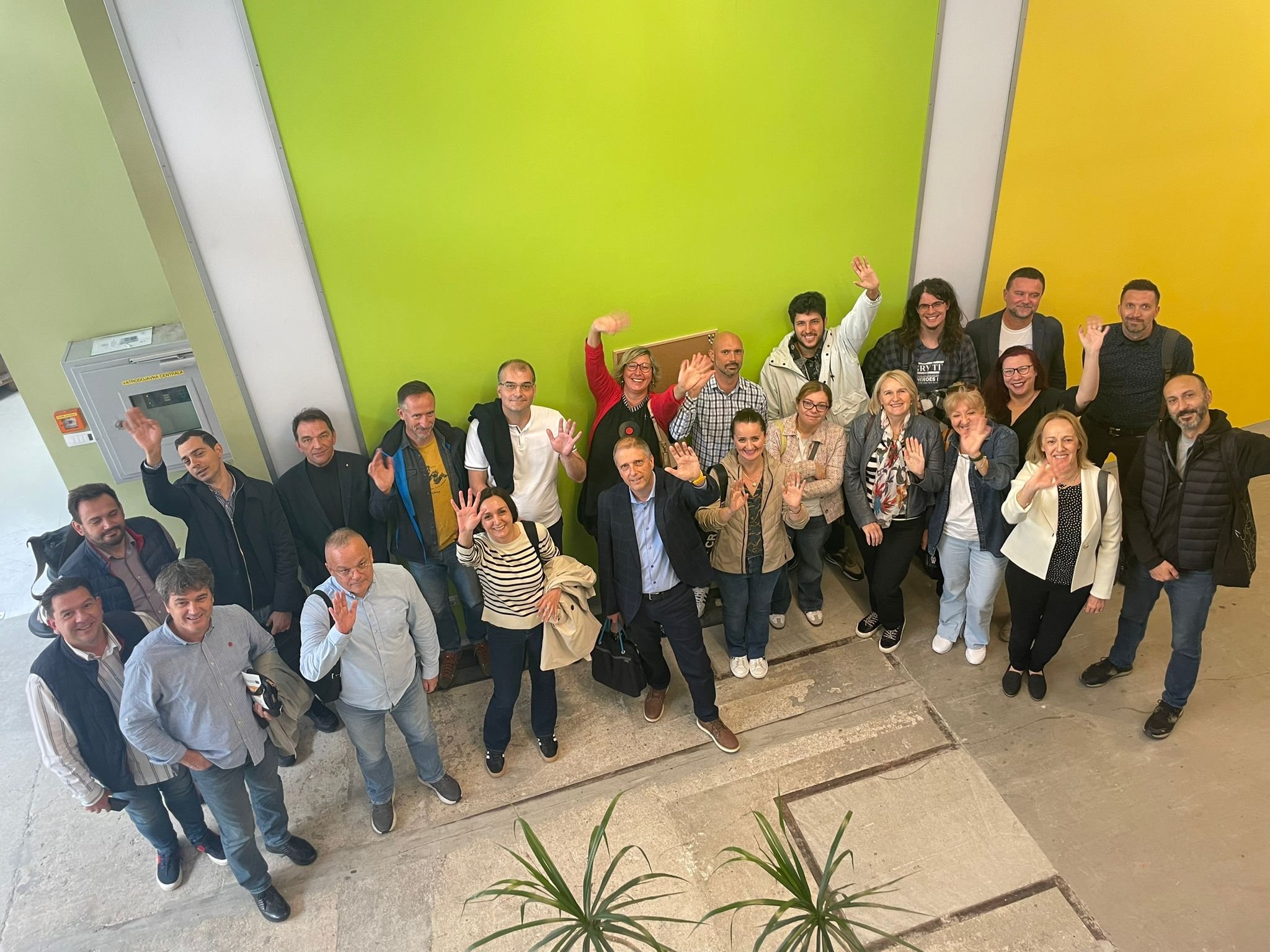Study Visit to Croatia: Advancing Energy Transitions and Citizen Energy Projects
From October 7–10, 2024, city councilors from Belgrade, Novi Sad, Zrenjanin, Užice, and Niš, alongside representatives from local governments, civil society activists, and experts from Serbia and Bosnia and Herzegovina, participated in a study visit to Croatia. This visit, organized by PET and made possible under the auspices of the Heinrich-Böll-Stiftung and their offices in Belgrade and Sarajevo, aimed to foster collaboration and exchange knowledge on citizen energy projects and local energy transitions, focusing on energy communities, energy renovations, and innovative environmental initiatives.
Purpose and Focus
The primary objective of the visit was to explore Croatia's ongoing efforts in implementing citizen energy projects and fostering local energy transitions. The key topics revolved around supporting energy community initiatives and the development of environmental protection projects. Participants gained valuable insights into how these initiatives are helping cities and rural areas alike adapt to greener and more sustainable energy practices.
Key Learnings:
· Croatia's experiences have shown that changing citizens' awareness of energy and environmental issues requires strong political commitment and the inclusion of many actors and multi-stakeholders (civil sector, professionals, policymakers, public officials, etc.).
· The strong linkages and cooperation between the civil sector, city officials, and academic institutions represent one of the critical success factors for project fundraising and their implementation in the City of Rijeka. This model should be considered and applied in Serbian and BIH cities.
· Energy transition is a long-term and complex process of energy democratization, decentralization, and decarbonization. This exchange type involving hands-on experiences and learning through others’ mistakes represents a valuable and useful way to accelerate the process.
Study visit participants with the Mayor of Krk Mr. Darijo Vasilić
Key Destinations and Discussions
The study visit centered on three important locations: Kvarner, Rijeka, and the island of Krk, each chosen for their leadership in sustainable energy practices.
On the island of Krk, the delegation was introduced to the innovative work of the Energy Cooperative of Krk. They have an opportunity to see the energy-independent house of Mr. Vjeran Piršić from CSO Eko Kvarner on initial steps and progress within the local community regarding renewable energy projects. Here, participants learned how energy cooperatives play a vital role in the island’s transition to renewable energy. Discussions with local leaders, such as Mayor Darijo Vasilić, highlighted how Krk’s energy transition has been driven by strong local commitment and innovative policies that make it a model for sustainable development.
The visit also included an in-depth exploration of Krk's waste management and recycling systems. Presentations from Public Company Ponikve and EKO Otok Krk showcased the island’s comprehensive efforts in waste management, including visits to local recycling centers and waste disposal sites. These sessions emphasized how efficient waste management can contribute to overall energy efficiency and environmental sustainability.
Rijeka: A Model for Urban Energy Transition
In Rijeka, the group visited the Rijeka Development Agency PORIN, where experts presented the city’s ambitious energy transition efforts. The discussions covered a wide range of topics, including energy communities, smart city technologies, and Rijeka’s innovative Green Urban Renewal Strategy. Representatives from the city administration shared their experiences in implementing these strategies, underscoring the importance of local cooperation and new financing models to achieve successful energy transitions.
The delegation also learned about emerging technologies, such as the BECKN protocol, which offer new possibilities for advancing urban energy transitions and enhancing energy efficiency in local communities.
Collaboration and Networking
The study visit was not only an opportunity to learn from Croatia’s experiences but also a platform for participants to engage in networking and knowledge exchange. By bringing together city officials, civil sector representatives, and energy experts from across the region, the event facilitated valuable discussions on how different communities—urban and rural alike—can collaborate to create sustainable energy solutions.
Experts from the Energetska Zajednica Sjevernog Jadrana presented successful energy community initiatives, demonstrating the challenges and opportunities that come with building local energy communities. The importance of cross-border collaboration and sharing best practices was a recurring theme throughout the visit.
Moving Forward: A Greener Future
The study visit to Croatia gave participants practical insights into how citizen energy projects and local energy transitions can be successfully implemented. It highlighted the critical role of energy cooperatives, waste management, and innovative technologies in creating sustainable, eco-friendly communities. The visit also underscored the importance of local leadership, community involvement, and regional collaboration in advancing energy transitions.
PET would like to thank all participants, partners, and hosts for making this visit a resounding success. The exchange of knowledge and experiences during this visit has laid the groundwork for future cooperation and continued progress toward a greener and more sustainable future.
Stay tuned for more updates as we continue to explore new opportunities for advancing energy transitions and environmental sustainability!



















